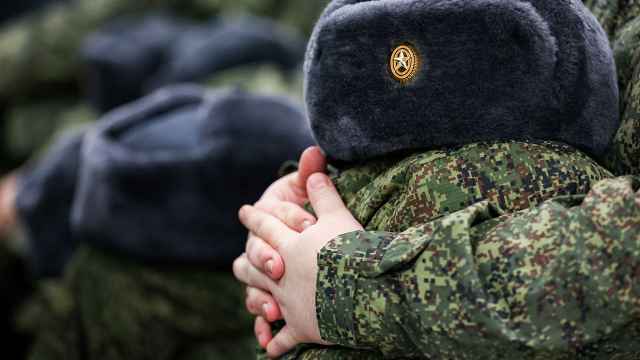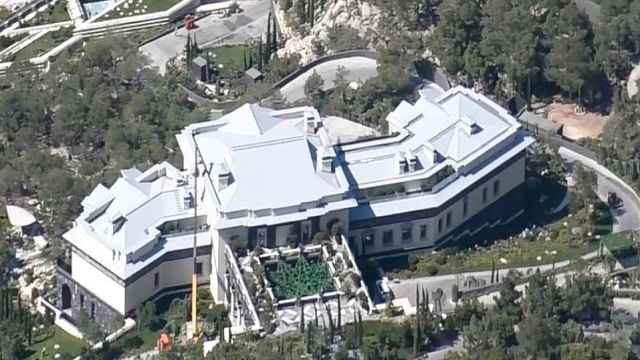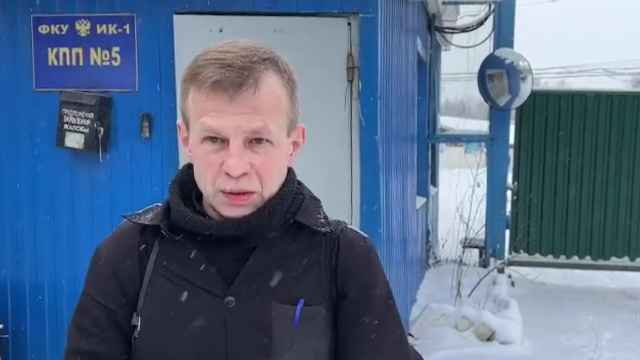After pastor Terry Jones burned a Quran in Florida in March, at least 30 people were killed in ensuing rioting in Afghanistan.
After Spartak fan Yegor Sviridov was killed in a brawl with North Caucasus natives in Moscow in December, more than 30 people were wounded when rioting erupted near the Kremlin walls.
In both instances, media organizations were accused of raising tensions by devoting too much attention to the irresponsible acts of radical individuals.
In a sign that ethnic and religious discord is an area that unites Russia and the United States, experts from both countries debated these issues at a two-day conference Monday and Tuesday. The gathering was an outgrowth of the "reset" in relations between the two countries.
And although the media in both countries may seem worlds apart, many issues raised by both American and Russian participants during a roundtable debate about ethics in journalism, held at the State Humanities University on Tuesday, were very similar.
"The cable [TV] reporting led to over-covering," Joyce Barnathan, president of the International Center for Journalists, said about the impact of the Quran burning on U.S. media.
"The Internet was full of obscene language directed against migrants," Pavel Gusev, editor of Moskovsky Komsomolets and chairman of the Public Chamber's media committee, said about the Manezh Square rioting.
A journalism student who introduced herself as Alisa suggested that media coverage of the Manezh rioting aggravated ethnic tensions by focusing on ethnicity.
"It was treated as a story about the murder of an ethnic Russian by an ethnic Caucasian, and not as the murder of a football fan," she said.
The dilemma faced by media outlets is how to meet legitimate public demand for information about such incidents without adding fuel to the fire, and the conference's U.S. participants agreed that to overcome this journalism must be explanatory and educational.
"The solution to bad speech is more speech and not to suppress bad speech," said Eric Newton, a veteran editor of California's Oakland Tribune, who serves as an adviser to the president of the Knight Foundation, which promotes journalism.
Of course, many problems faced by Russian reporters are unlikely to ever bother journalists in the United States.
Valery Vyzhutovich, a columnist for Rossiiskaya Gazeta, the government's newspaper of record, complained that Russian authorities often insist on unethical terms. "Access to information is given in exchange for loyalty," he said.
Gusev said the government's influence over the media would likely remain high as cash-strapped publishers look to state coffers for help. He noted that the government is spending 174 billion rubles ($5.3 billion) between this year and 2013 to support national media outlets, including state television stations and state news agencies.
"Is it right or wrong to take this money?" he asked.
Gusev also said Russians' trust in journalism has plummeted since oligarchs bought media outlets in the late 1990s to "launch massive attacks on the population."
The two-day conference is part of the U.S.-Russian Civil Society Working Group, which was set up in 2009 as part of the reset. The media subworking group aims to foster contacts between media and will include an exchange program for young journalists, acting Undersecretary of State Ann Stock told reporters in Moscow on Monday.
A Message from The Moscow Times:
Dear readers,
We are facing unprecedented challenges. Russia's Prosecutor General's Office has designated The Moscow Times as an "undesirable" organization, criminalizing our work and putting our staff at risk of prosecution. This follows our earlier unjust labeling as a "foreign agent."
These actions are direct attempts to silence independent journalism in Russia. The authorities claim our work "discredits the decisions of the Russian leadership." We see things differently: we strive to provide accurate, unbiased reporting on Russia.
We, the journalists of The Moscow Times, refuse to be silenced. But to continue our work, we need your help.
Your support, no matter how small, makes a world of difference. If you can, please support us monthly starting from just $2. It's quick to set up, and every contribution makes a significant impact.
By supporting The Moscow Times, you're defending open, independent journalism in the face of repression. Thank you for standing with us.
Remind me later.






